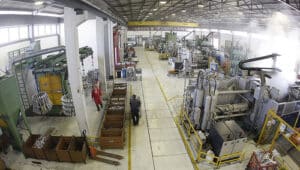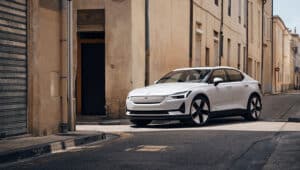By: MARK RAWCLIFFE
Is the windscreen price correct?
By Portuguese standards, the simple answer is yes. By European standards, the correct answer is no.
It has been going on for years and finally Europe has slammed its size 9’s on the bureaucrats in Lisbon forcing them into submission over the double taxation issue that hits us all hard in the pocket when we buy or import a car.
The windscreen price of cars is calculated with three values. The first was the cost of the car, the second the Imposto Automóvel (roughly translated to mean car tax – NOT road tax) and the third the VAT man’s slice of action. The issue is that VAT, or IVA, as it is known in Portugal (and it is the highest in Europe at a whopping 21 per cent – the rate in the UK is 17.5 per cent), is charged on the cost of the car and the car tax. So we are paying tax on tax, making new cars up to seven per cent more expensive to buy due to this double taxation. Motoring associations and tax experts are encouraging consumers to demand refunds of the unduly paid VAT and have pledged to back motorists in their quest.
The implementation of the EU ruling will cost the Portuguese state billions of euros, which I feel sure that the state will claw back through either raising the cost of the car tax, or increasing the price of road tax. Let’s be honest – Portugal is not exactly rolling in money although the EU now views Portugal as a wealthy country, following the introduction of the Eastern block countries into our European Community.
The effects, if the government complies with the EU ruling, could mean a saving of 1,750 euros on a car with a windscreen price of 25,000 euros. For those of us who bought cars before Europe’s right foot fell, it will mean that, as the overall cost of vehicles will fall, so will the second hand value of all cars – this means that if your Ford Focus set you back 30,000 euros in 2006, it will now only be worth 27,900euros for the same car if you purchased it new in 2007. The second hand value will then be calculated on the new 2007 price meaning that, on top of the normal depreciation, you will have to count in a loss of 2,100 euros or seven per cent of the purchase price.
What it does mean is that people importing cars into Portugal and paying the car tax, may also save through Portugal not charging VAT on the Imposto Automóvel.
It’s a step in the right direction to resolve an issue that has plagued consumers for many years. The knock-on effect could hurt us though, so be careful what you wish for.
Police stops can be dangerous
From bitter experience, most, if not all, of us have been stopped at some point by the police (Brigada de Trânsito-GNR) for what is known as a routine document check on vehicles.
While, in principle, I agree with the process and the promise that illegal motorists will be removed from the road, I do not agree with the geographical positions in which our police force choose to do it. Only too often, the BT-GNR pick a location that is idiotic, if not dangerous, to other road users. I have witnessed roundabouts being used, motorway junctions, the hard shoulder on roads that are already dangerous without adding yet more hurdles.
I know that they have to do it somewhere, but surely they can pick better locations that do not cause concern, congestion and, in some cases, panic on our already busy roads.
More patrols on the roads could help the police to identify target vehicles to help their own cause, although it may not bring in the level of fines for minor infractions that it currently does. Red light cameras with steep fines could improve the income without the police having to do anything short of licking the envelope the fine goes in and, frankly, it will stop red light jumpers who stand a better chance of killing someone than a motorist who has forgotten his driving licence.
For fear of being stopped again and again by the boys in blue as a result of this article, I drive a dark grey BMW.
Do you have a view on this story? Email: editor@portugalresident.com


















